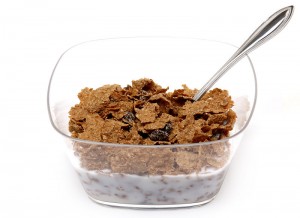
More evidence that low-calorie sweeteners are bad for your health
Studies show that artificial sweeteners can raise the risk of hypertension, metabolic syndrome, type 2 diabetes and heart disease, including stroke.

Natural Health News — A revealing report by The Cornucopia Institute, an organic industry watchdog in the US, has shown that popular ‘natural’ cereals are contaminated with genetically modified organisms (GMOs).
The report – Cereal Crimes: How “Natural” Claims Deceive Consumers and Undermine the Organic Label – has stirred controversy amongst consumers and cereal manufacturers by highlighting deceitful marketing practices by some of the nation’s largest breakfast cereal manufacturers.
In some cases, companies such as Kellogg’s, Quaker Oats (owned by PepsiCo), Whole Foods Market and Barbara’s Bakery are selling products contaminated with toxic agrochemicals and Monsanto’s genetically engineered organisms while promoting them to lure health-conscious and eco-conscious consumers as “natural.”
Amongst it’s findings, the report details the strategies prominent agribusinesses use to create the illusion of equivalence between the “natural” and organic labels to mislead consumers.
Unlike the organic label, no government agency, certification group, or other independent entity defines the term “natural” on processed food packages or ensures that the claim has merit.
In contrast, breakfast cereals displaying the USDA’s “certified organic” label are produced under a strict set of verified standards prohibiting the use of petrochemical-based fertilisers, sewage sludge, synthetic toxic pesticides, genetically modified crops and other many common conventional agricultural and manufacturing inputs.
Cereal Crimes details the results of laboratory tests conducted with an independent, accredited laboratory which looked at what was really in many “natural” breakfast cereals for potential genetic contamination.
“Natural” cereals from brands including Kashi (Kellogg’s), Mother’s (PepsiCo), Nutritious Living, Barbara’s Bakery (Weetabix), and 365 (Whole Foods Market) contained high levels of genetically engineered ingredients (all above 28%, some as high as 100%) – even though a number of these companies represent their products as “non-GMO” to the public.
“Consumers probably find this marketplace subterfuge less surprising when they learn that many of the leading ‘natural’ cereal brands are really manufactured by giant agribusinesses like Kellogg’s, hiding behind the façade of well-established niche brands,” said Harry Bennett, a marketing official with the Kansas Organic Producers Association, a cooperative of marketing organic grain.
Despite finding that “natural” cereal products offer few, if any, advantages over conventional products, companies typically charge substantially high prices for products with “natural” labelling claims.
Further analysis by Cornucopia of wholesale and retail cereal and granola prices revealed that “natural” products often are priced higher than equivalent organic products. This suggests that some companies are profiting from consumer confusion.
For example, prices in the leading natural/organic food distributor’s wholesale catalogue for multigrain flakes show that two of the least expensive products are actually certified organic, offered by industry leader Nature’s Path and Food for Life. Meanwhile, Kashi’s 7-grain cereal, made with cheaper non-organic grains by the multinational corporation Kellogg’s but disguised as an independent sounding “natural” brand, is priced higher than equivalent organic options.
To help health-conscious consumers make informed choices, Cereal Crimes is accompanied by a scorecard rating various breakfast cereal and granola brands on their support of healthy and environmentally sustainable practices. The scorecard can be viewed here.
In a related study Mexican researchers have discovered an alarmingly high percentage of wild cotton is now contaminated with GM genes.
In their study just under a quarter of the wild cotton seeds assessed contained GM genes modified to resist insects, herbicides or antibiotics. One of the contaminated seeds came from a wild plant located 755 kilometres away from the nearest GM cotton plantation. But others were determined to be beyond first-generation hybrids because they carried multiple genes from a variety of different sources.
According to the researchers writing in the journal Molecular Ecology, the GM seeds could have been dispersed by long distance lorry drivers transporting seeds for animal feed or oil extraction; by mild or strong winds; by fresh or salt water; or by birds and animals that had eaten them.
The flow of genes between cultivated GM or non-GM cotton plants and their wild relatives reduces the genetic diversity of cotton. Genetic diversity is a plants first line of defence against attack from pests and disease as well as changes in growing conditions such as weather and climate variations. Loss of genetic diversity can have consequences for the environment, food safety and health, as well as legal and commercial implications.
“It is urgent to stop the flow of genes between cultivated and wild plants,” said Ana Wegier, lead author of the study and a researcher at the National Autonomous University of Mexico’s ecology institute.

Please subscribe me to your newsletter mailing list. I have read the
privacy statement